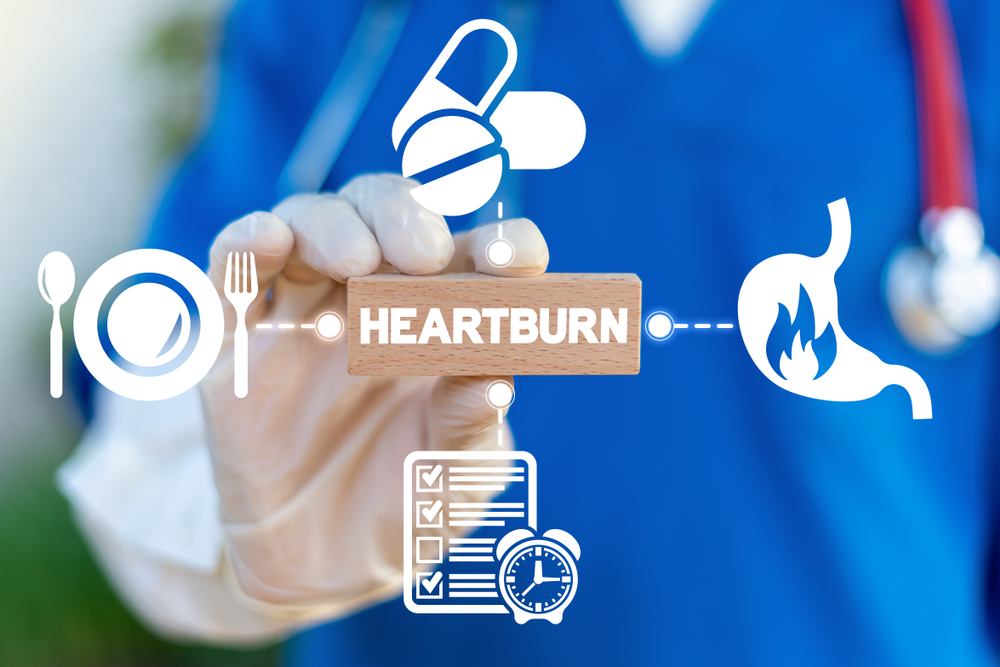Heartburn or Acid Reflux? How to Tell the Difference (+Treatments)

I feel that acid reflux symptoms are such an overlooked problem these days that many people don’t even seek help. In fact, more than 40% of adults experience these unpleasant signs at least once per month – and numbers are probably bigger.
If you’ve been struggling with burning sensations, chest pain or regurgitation, this post is for you so keep reading.
Is it heartburn or acid reflux?
Some say they are two different conditions, while others think it’s the same thing. So what are you feeling after all: heartburn or acid reflux?
Jeff Stal, gastroenterologist at Women’s College Hospital, explains that heartburn is in fact the main symptom of acid reflux. I think we’re all familiar with that burning sensation located right in our chest; as it turns out, this is the most common sign of the medical condition called acid reflux.
Other symptoms that may be cause by this disease are:
- Regurgitation
- Chest pain
- Upper abdominal burning
Main causes
According to dr. Stal, ‘Some people are more prone to developing this condition due to their lifestyle, which can either contribute or worsen their condition.’ The first step to preventing another episode is to observe what you are eating and drinking before it happens.
The most common causes for acid reflux are:
- Alcohol
- Caffeine
- Foods high in trans fats
- Chocolate
- Peppermint
Smoking also has a major influence on acid reflux development. Science proved that smoking may weaken the lower esophageal sphincter (LES), which is the valve that connects the esophagus to the stomach. When LES is more relaxed than necessary, the acid located in your stomach can travel into the esophagus, hence the acid reflux.
Treatments
If you’re experiencing acid reflux occasionally (less than two times per week), Dr. Stal has some great news: all it takes it to give up on the unhealthy life choices that cause the condition. Adopting a healthy diet, quitting smoking and giving up on sodas can all have a major positive impact.
Nowadays, there are also plenty of over-the-counter treatments available which help you to relieve unpleasant symptoms. However, these medications only work for occasional acid reflux.
Dr. Stal says that if you experience acid reflux more than a couple of days each week, you may be suffering from gastroesophageal reflux disease (GERD). For this condition, he recommends the following techniques:
- Avoid lying down for three hours after each meal;
- Chew gum to increase salivation, as it neutralizes stomach acid;
- Avoid foods that may worsen symptoms (mentioned above).
3 diets recommended by scientists to rejuvenate your body
When to seek help
According to Dr. Stal, it’s crucial to call your doctor if you experience one or more of the following symptoms:
- Difficulty swallowing
- Vomiting blood
- Black bowel movement
- Sudden weight loss
GERD can also bring additional symptoms that require medical assistance as soon as possible:
- Wheezing
- Hoarseness
- Aspiration of acid (can damage the lungs!)
- Teeth enamel erosion
- Laryngitis
How often are you struggling with acid reflux? What are you doing to relieve the symptoms? Let us know in the comments and let’s help each other out!
